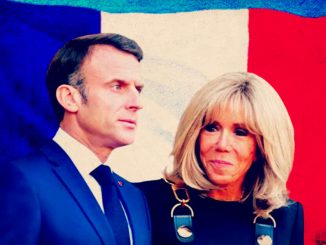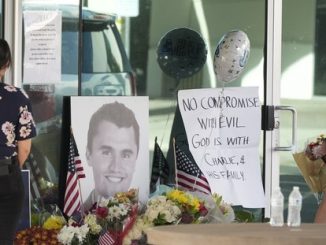
| Published June 25, 2025
He’ll fit right into Zohran Mandami’s New York and might find himself in a guest chair on The View
Mahmoud Khalil’s journey to the United States is the kind of story that once symbolized the American Dream. Born in a Palestinian refugee camp in Syria in 1995, Khalil overcame staggering odds—earning a computer science degree in Beirut and later completing a master’s degree at Columbia University’s School of International and Public Affairs in 2024. But his dream took a sharp turn when he became a central figure in the pro-Palestinian protests at Columbia during the 2024 Gaza conflict. As spokesperson for Columbia University Apartheid Divest (CUAD), Khalil helped lead sit-ins and negotiations that drew national attention—and government scrutiny.
In March 2025, Khalil was arrested by ICE agents at his Manhattan apartment. Authorities accused him of aligning with Hamas, citing a Cold War-era immigration law to justify his detention. His arrest—without formal charges—sparked public outcry from civil liberties groups, students, and faculty, all arguing the U.S. was criminalizing dissent. While Khalil sat in ICE custody in Louisiana, his wife gave birth to their first child. After 104 days, a federal judge ruled his detention unconstitutional, and he was released in June.
Khalil’s case raises sharp questions about freedom of speech, immigration enforcement, and whether peaceful political advocacy can survive in a polarized America that once promised refuge for voices like his.
 Implications
Implications
1. Free Speech vs. National Security
Khalil’s arrest under a 1952 immigration law suggests a widening gap between free speech protections and national security claims. While he was never formally charged with a crime, the use of political affiliation as grounds for detention raises concerns that peaceful advocacy—especially on contentious issues like Israel–Palestine—could be criminalized.
2. Precedent for Student Activism
His case may set a chilling precedent for international students and visa holders who engage in protest. Universities could be pressured to monitor, report, or even penalize students based on their political views or affiliations, undermining academic freedom.
3. Immigration Policy as a Political Weapon
By invoking rarely used legal tools to detain a lawful permanent resident, the government showed a willingness to stretch immigration law for ideological enforcement. This signals a possible shift where dissenting non-citizens—especially from politically sensitive regions—may be seen as security liabilities rather than residents with rights.
4. Political Polarization of U.S. Campuses
Khalil’s detention intensified the culture war on campuses. To his supporters, he became a symbol of resistance and victimization; to critics, he represented radicalization hiding behind academic credentials. The case further divides how Americans interpret campus protest movements—either as expressions of democratic values or as threats to national cohesion.
5. Human Cost of Enforcement
Finally, Khalil’s story reveals the human toll of immigration enforcement. His family was separated for over three months during the birth of his son, a U.S. citizen. This detail underscores the emotional and social consequences of targeting individuals not for crimes—but for beliefs.
💬 Overall Takeaway:
Mahmoud Khalil’s story is more than a personal ordeal—it is a reflection of America’s ongoing struggle to reconcile its democratic ideals with its national security impulses. A man who came to the U.S. seeking opportunity found himself at the center of a constitutional clash between immigration enforcement and free expression. His arrest, detention, and eventual release have sent a warning signal to immigrants, students, and activists alike: political participation, even when peaceful, can carry real risks—especially when it challenges the status quo. As debates over academic freedom, civil liberties, and immigration intensify, Khalil’s case may well become a touchstone in defining the limits of dissent and the resilience of democratic protections in a polarized era.





Be the first to comment